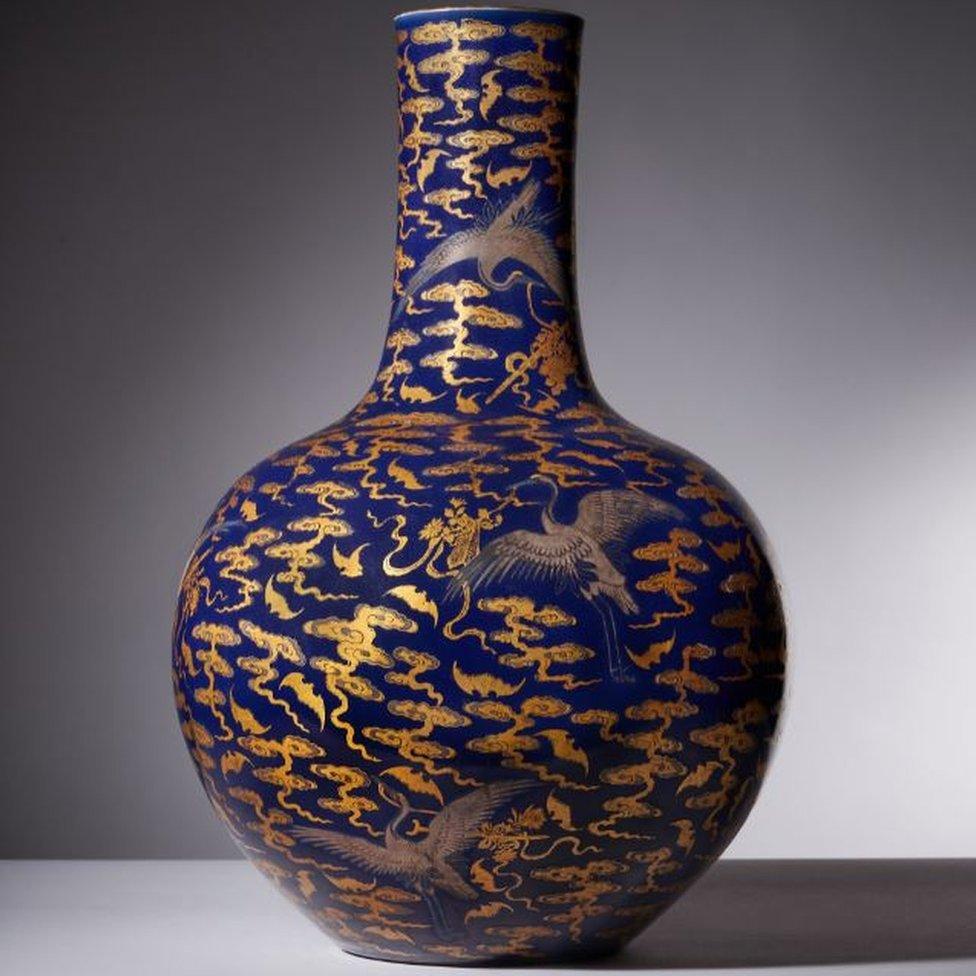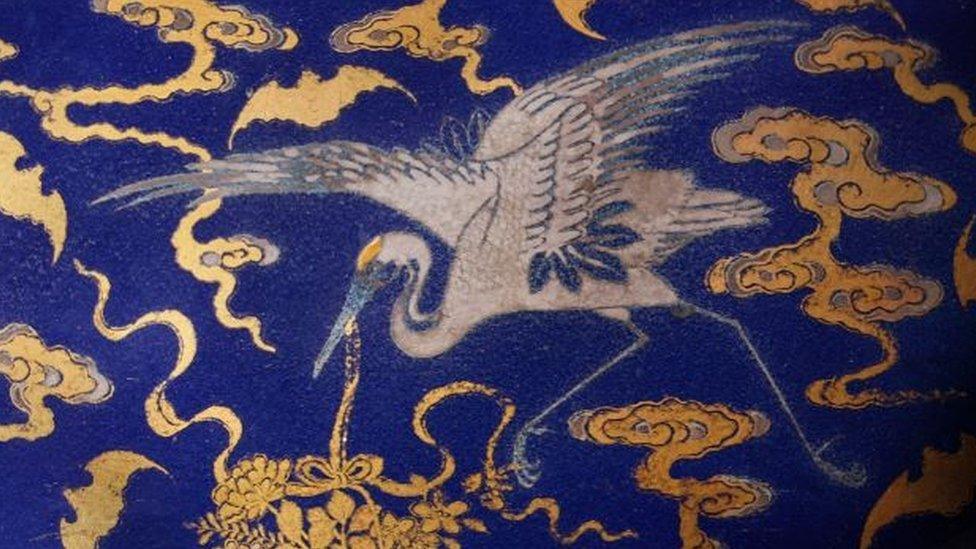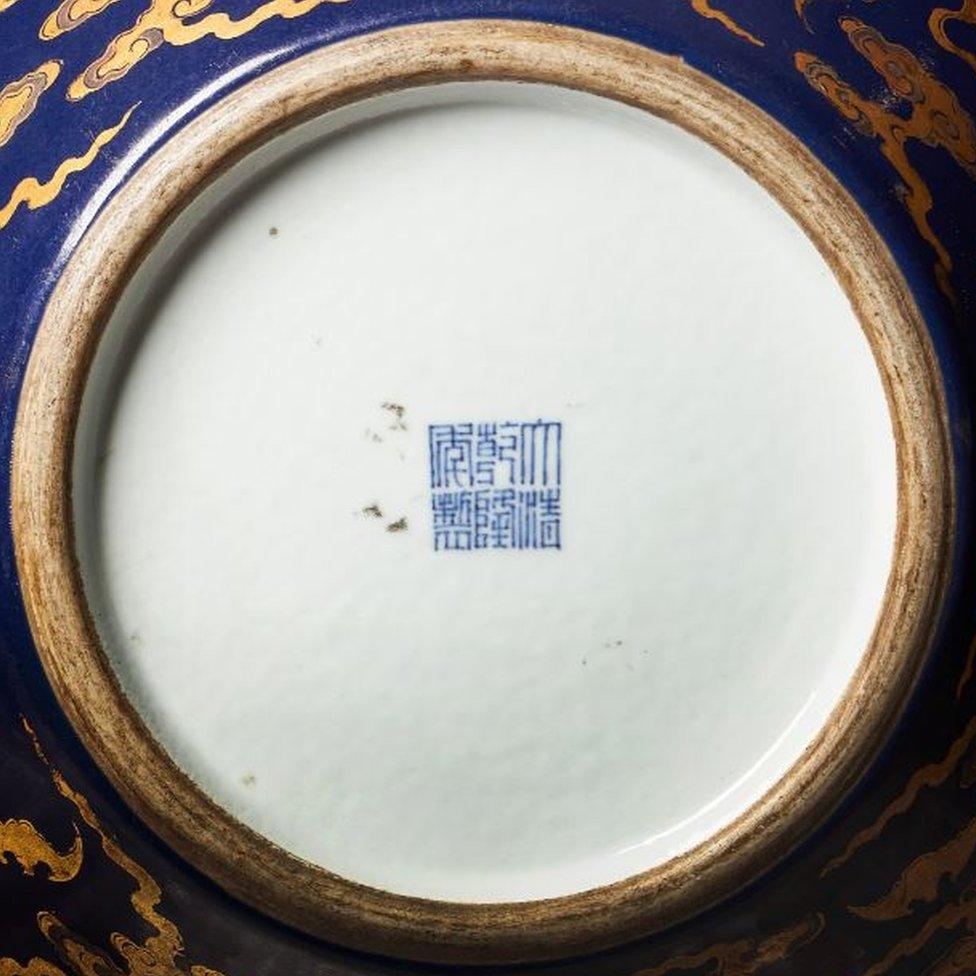Qianlong-period Chinese vase, kept in kitchen, fetches almost £1.5m
- Published

The blue-glazed, silver and gilt vase was created for the court of the Qianlong Emperor
An "extremely rare" 18th Century Chinese vase bought in the 1980s for a few hundred pounds and kept in a kitchen has sold for £1,449,000.
The 2ft (60cm) blue-glazed, silver and gilt vase was created for the court of the Qianlong Emperor.
Decorated with cranes and bats, it had been estimated to sell at auction for between £100,000-£150,000.
The vase was owned by a surgeon who passed it on to his son who had not realised its value.
Berkshire-based Dreweatts Auctioneers said it was only when a visiting antiques specialist spotted it that its true value and history were revealed.
It was sold to an international buyer on the telephone. The hammer price was £1,200,000, with the bidder paying £1,449,000 including buyers premium.
Mark Newstead from the auction house said: "We are delighted with this exceptional result. We saw widespread interest from China, Hong Kong, America and the UK which resulted in very competitive bidding."

The flying cranes and bats on the vase signify longevity and prosperity
The vase bears the "distinctive" six-character mark of the Qianlong period (1736-1795) on its base, the Newbury auction house said.
It added: "The rich cobalt blue is often referred to as 'sacrificial blue', deriving from the use of vessels in this colour glaze being used during sacrifices at the Imperial Altar of Heaven.
"It is extremely rare to see blue vases painted in both gilding and slightly raised silver, thought to be due to the medium being difficult to control.
"Thrillingly, no other porcelain decorated with the same subject in gold and silver appears to have ever been documented."
It added the flying cranes and bats on the vase signified longevity and prosperity.

The 18th Century vase bears the six-character mark of the Qianlong period

Follow BBC South on Facebook, external, Twitter, external, or Instagram, external. Send your story ideas to south.newsonline@bbc.co.uk, external.